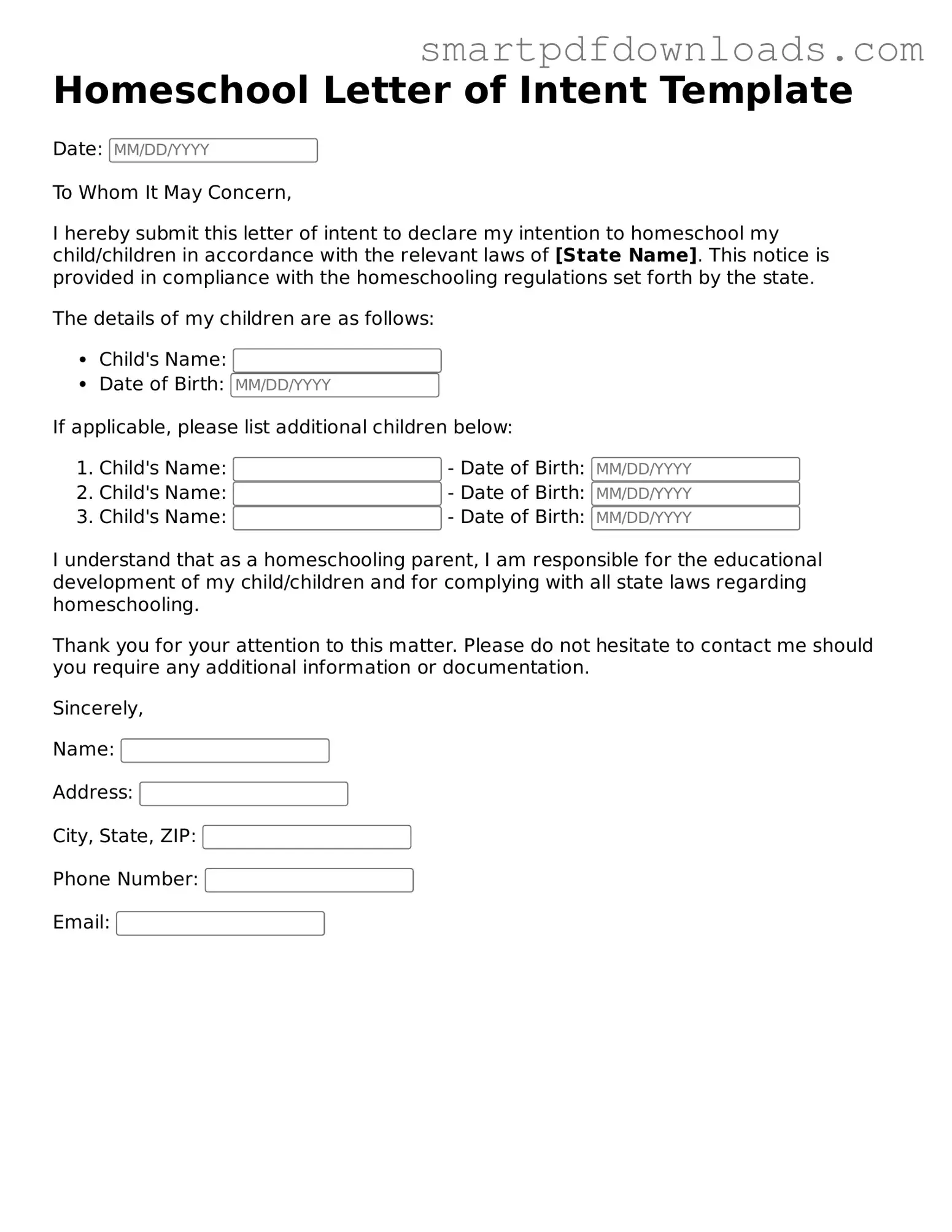Free Homeschool Letter of Intent Form
The Homeschool Letter of Intent is a formal document submitted by parents or guardians to notify their local school district of their decision to educate their children at home. This letter serves as an essential first step in the homeschooling process, outlining the intent to provide a structured educational environment outside of traditional schooling. Understanding its requirements and implications can help families navigate the homeschooling landscape more effectively.
Edit Homeschool Letter of Intent Online

Free Homeschool Letter of Intent Form
Edit Homeschool Letter of Intent Online

Edit Homeschool Letter of Intent Online
or
⇓ PDF File
Finish the form and move on
Edit Homeschool Letter of Intent online fast, without printing.